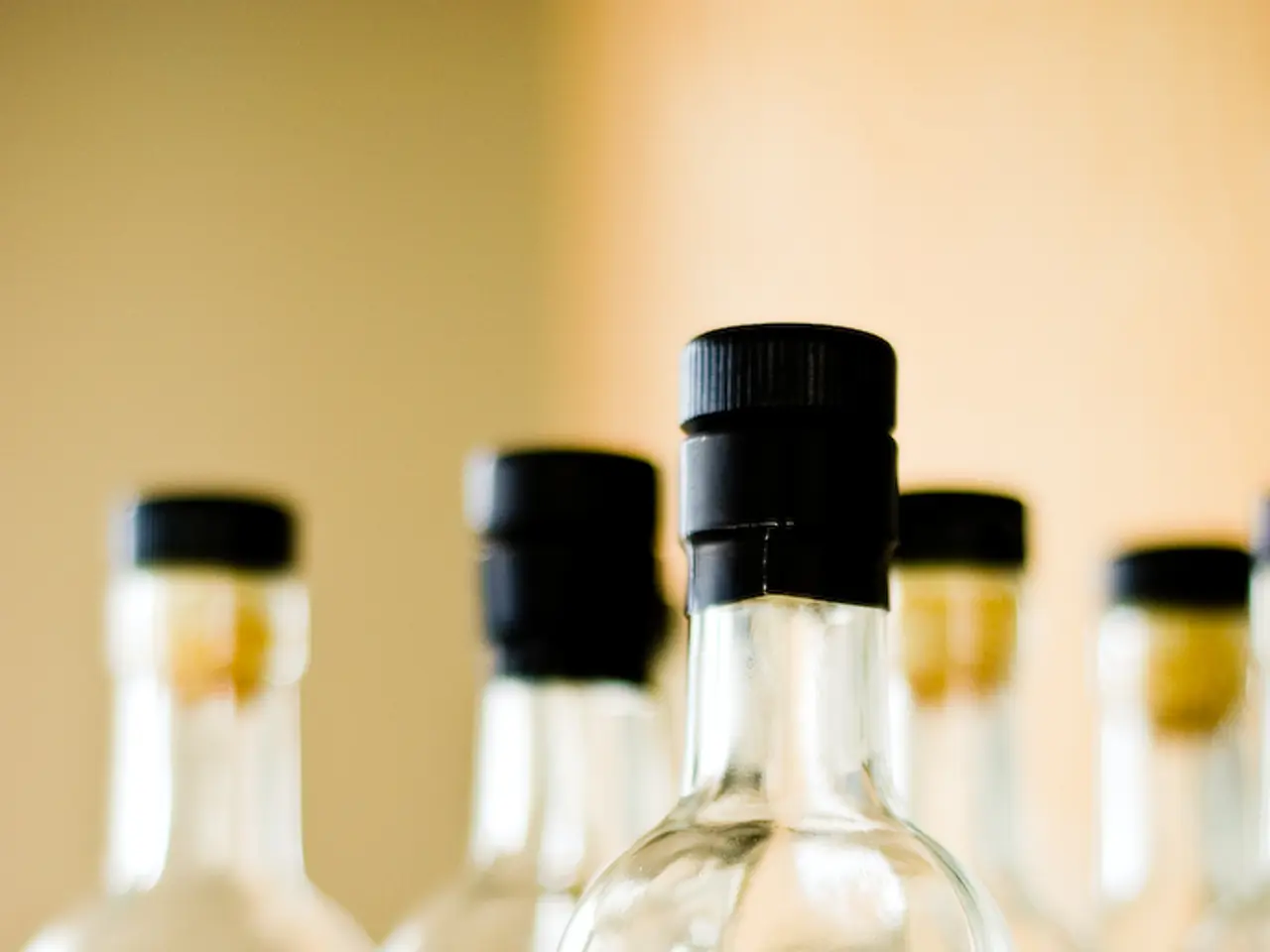Heavy Drinking Linked to Brain Damage in New Study
A recent study by the University of São Paulo has revealed a concerning link between high alcohol consumption and brain damage associated with Alzheimer's and cognitive decline. The research, published this week, suggests that consuming more than eight alcoholic drinks per week could lead to long-term brain damage and risk of cognitive decline.
The study analyzed data from over 1,700 individuals aged 50 or older, with an average age at death of 74.9 years. It found that heavy drinkers were 133% more likely to develop vascular brain lesions than those who had never consumed alcohol. These lesions, caused by hyaline arteriolosclerosis, are a thickening of the walls of small blood vessels in the brain that impedes blood flow and can lead to long-term brain damage and risk of cognitive decline.
Moderate drinkers also had a higher risk, with a 60% increased likelihood of developing these lesions compared to abstainers. Former heavy drinkers, despite having stopped, still had an 89% higher risk. The study also found that heavy drinkers and former heavy drinkers had a higher risk of having neurofibrillary tangles, protein clusters in the brain associated with Alzheimer's and cognitive decline.
The findings underscore the potential long-term effects of heavy alcohol consumption on brain health and risk of cognitive decline. Those who consume more than eight alcoholic drinks per week may be at a significantly higher risk of brain damage and cognitive decline. The study emphasizes the importance of responsible drinking and seeking medical advice for those struggling with alcohol consumption.
Read also:
- Is it advisable to utilize your personal health insurance in a publicly-funded medical facility?
- Dietary strategies for IBS elimination: Aims and execution methods
- Benefits, suitable dosage, and safety considerations for utilizing pumpkin seed oil in treating an overactive bladder
- Harmful Medical Remedies: A Misguided Approach to Healing






